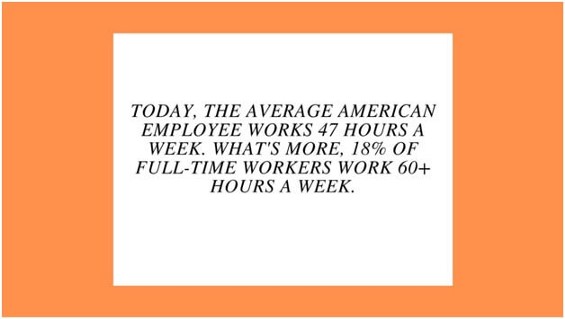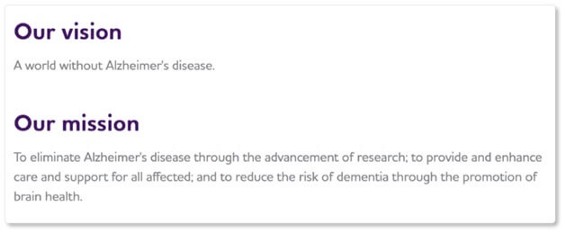Many job seekers often fall into the mode of looking for their ideal job. They see themselves working in a specific field and focus their entire energy on getting hired at all costs. The ideal workplace can be a tech company that offers a cool culture full of workplace perks such as ping-pong tables, gym memberships, and team retreats.
But before you get lured into a new job because of ping-pong tables, you have to figure out whether you’ll be happy and successful working in that company culture. What happens when the employer is not what we hoped they would be? What if, instead of having a great deal of autonomy, you end up being stuck in a cycle of micromanagement? Or, instead of stability, you find yourself working for an employer that’s always changing their strategy?
So, before you start going to interviews and preparing your speech, there are a few questions you should ask yourself. Let’s begin!
1. What motivates you at work? Is it ping-pong tables or smart coworkers?
Yes, office perks can be an effective way to keep you happy and engaged. No wonder many tech companies are offering perks beyond belief to attract top talent, increase employee satisfaction, and decrease their turnover rates.
For example, Slack’s headquarters are an office version of planet Earth. In the lobby, employees can huddle up or meditate in a tent-like structure before starting their ascent. Squarespace have a cafeteria that’s always stocked with goodies that teammates can snack on. TripAdvisor’s offices come with a state-of-the-art gym, game rooms, and, an employee favorite, a private pub.
For many employees, a green office with its own cafeteria and gym does wonders for their productivity. For others, it doesn’t hold any importance unless there are ambitious and smart people to share the space with.
If you want to know what motivates you in life, you have to think about a time when you were productive. Were you alone, or were you working with other people? Were you working in a cool office with state-of-the-art perks?
Then think about a time when you were utterly unproductive and what was specific about that situation. Once you pinpoint what helps you stay motivated at work, you’ll have an idea of what’s the ideal employer for you.


(Garrett Rowland Photography)
2. Do you see yourself working in a startup or a larger corporation?
Working for a startup differs from working at a larger company. The main difference is the rate at which things change. At a larger company, you might do the same set of tasks for a couple of years and get promoted after someone above you retires.
Things change more rapidly when you work at a startup. Your role and tasks might change a few times per year. That means that you have to evolve and keep up at a fast rate. Startups are always experimenting, depending on whether you’re launching a new product, working on your marketing campaign, or rebranding.
If you want to find your ideal employer, you have to ask yourself:
- Do I want to have consistent, predictable, and repetitive work? Or do I want to do a lot of experimenting and working on various tasks?
Only by answering this question will you be able to find a job in which you would be the most productive and satisfied. A good recruitment agency can always help you make the best decision.
3. What type of work/life balance would make you happy?
Today, the average American employee works 47 hours a week. That’s almost one day longer than the standard 40-hour workweek. What’s more, 18% of full-time workers work 60+ hours a week.
Another survey by Glassdoor found that 66% of employees work while they’re on vacation. The average U.S. employee has taken only 54% of his/her eligible vacation time/paid time off in the past 12 months.
The end result? Employee burnout!
That’s why many employees opt for some work/life balance. They give their best during the weekdays but turn off their phones once the weekend comes.
Before you sign that work agreement, you have to ask yourself: “Do I mind getting emails from my employer late at night and on the weekends? Do I want to de-stress and enjoy my life when I’m outside of work?”
During the interview, look for clues about the type of work/life balance at the company. Try to understand what you should expect working there and be honest with yourself about what you need.


4. Do you prefer autonomy or don’t mind being micromanaged?
Some people prefer a lot of direction while others like to work things on their own. Working under pressure might motivate you to do your best work, or it can be something that you don’t particularly enjoy.
Micromanagement at larger companies is less present. Your manager will be too busy dealing with their own projects, and won’t have the time to keep a close eye on you. You’ll have a great deal of autonomy and you’ll have to learn to manage yourself. This means setting deadlines for yourself and sticking to those deadlines.
Smaller companies usually employ no more than 80 people. The smaller the company, the more often you’ll be picking up new roles and responsibilities. You’ll be working closely with your manager, which means less autonomy and more micromanagement.
It all comes down to your own preferences and what your perfect employer entails.
5. Do you connect with the purpose of the company?
A company’s purpose is an affirmation of its reason for being in business. It outlines what the company stands for in ethical, emotional, and practical terms. A company’s purpose should serve as an inspiration for employees to be creative and inventive, and perform their best work to advance the company.
For example, you might not connect with a company’s purpose “to create and promote healthy and organic beverages to every home”. Maybe you want to work for a company that strives to “end violence and exploitation in our world’s most vulnerable communities.”
When you’re considering a job offer, you must ask yourself: “Do I care about the impact that the organization is making in the world?” If you don’t connect with the purpose of a company, then you’re probably not the right fit for the company.


(The Alzheimer’s Association)
6. What benefits are important to you?
Most job seekers want a quality benefits package to complement their job offer. One study by Fractl found that other than healthcare benefits, the most desirable employee benefits include:
- more flexible hours
- more vacation time
- student loan assistance
- gym membership
- on-site food
- development opportunities
But which employee benefits do you desire the most? Would a work-from-home option make you more productive? Or would you prefer free daycare services?
During your interview, you’ll be allowed to ask the employer questions. Don’t waste it! Whether your priority is professional development, a flexible work-from-home policy, or something else, make sure to ask about these benefits. Or, if you’re going through an employment agency, they can answer all the questions for you.
Final Word
Trying to understand whether an employer would be the ideal fit for you is often challenging. Finding the perfect company comes down to understanding your career values and your work preferences.
Don’t forget to research the employer thoroughly and ask the proper questions when an opportunity arises. If you uncover something that you dislike or that makes you uncomfortable, then that’s a sign that the employer is not right for you. It’s always better to learn everything you should know beforehand instead of after you’ve signed the agreement.
If you’re collaborating with a recruitment agency, the HR professionals working there will help you make the best decision. They know the type of culture at each company and can offer their insight into what they think would be your most productive work environment.
Ask these questions, and hopefully, you’ll manage to find your dream job and employer.









